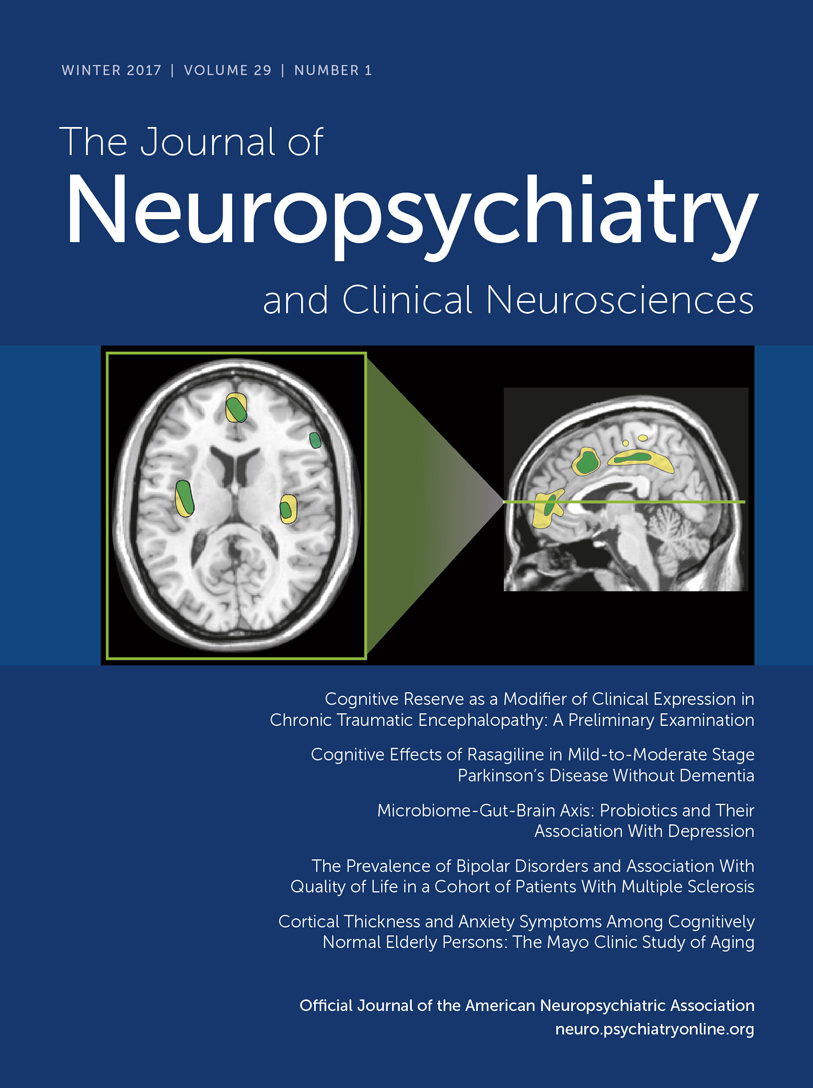Cognitive Reserve as a Modifier of Clinical Expression in Chronic Traumatic Encephalopathy: A Preliminary Examination
Abstract
This study conducted a preliminary examination on cognitive reserve (CR) as a modifier of symptom expression in subjects with autopsy-confirmed chronic traumatic encephalopathy (CTE). The sample included 25 former professional football players neuropathologically diagnosed with CTE stage III or IV. Next of kin interviews ascertained age at cognitive and behavioral/mood symptom onset and demographic/athletic characteristics. Years of education and occupational attainment defined CR. High occupational achievement predicted later age at cognitive (p=0.02) and behavioral/mood (p=0.02) onset. Education was not an individual predictor. These preliminary findings suggest that CR may forestall the clinical manifestation of CTE.



